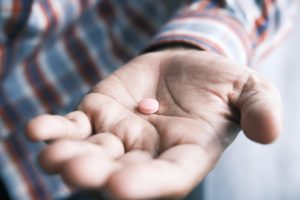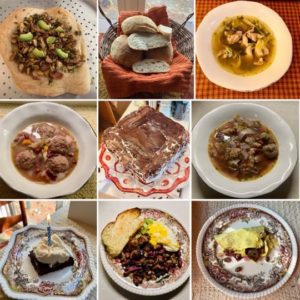Eosinophilic Esophagitis (EoE)
What is eosinophilic esophagitis (EoE)?
Eosinophilic esophagitis (EoE) is a chronic digestive system disorder in which large amounts of eosinophils, a type of white blood cell, are present in the esophagus. These white blood cells are an important part of the immune system because they help fight infections, and their accumulation is a trademark of certain allergic diseases.
What causes eosinophilic esophagitis (EoE)?
EoE is caused by the excessive amount of eosinophils in the esophagus, which may be caused by immune hypersensitivity to particular foods or allergens in the environment. In addition, some individuals with EoE have been found to have unusually high expressions of the eotaxin-3 gene, so there may be a biological component to this disease.
What are the symptoms of eosinophilic esophagitis (EoE)?
The characteristic symptoms of eosinophilic esophagitis include the following:
- Dysphagia (difficulty swallowing)
- Food getting stuck in the throat
- Nausea and vomiting
- Poor growth and weight loss
- Stomach pain
- Poor appetite
- Malnutrition
In addition to these, patients with EoE often have allergic diseases, such as asthma or eczema.
How is eosinophilic esophagitis (EoE) diagnosed?
EoE shares some symptoms with gastroesophageal reflux disease (GERD) and has only been identified in the past two decades, so many patients are often initially misdiagnosed. A biopsy of the tissue in the esophagus is necessary to count the eosinophils and successfully make an EoE diagnosis.
Once the diagnosis is made, allergy testing should be performed to determine if there is a food or environmental factor causing the disease or contributing to other allergic issues.
What are the available treatments for eosinophilic esophagitis (EoE)?
Many patients with EoE show an improvement in their prognosis if diet modifications are made, such as removing milk, eggs, soy, wheat, nuts, and fish.
In severe conditions, some patients need to be fed a liquid formula diet through a feeding tube or take steroid medications to control inflammation.
Besides these current treatment options, research is underway to test medications that target the biological component of EoE, by blocking the proteins produced by the condition.
Where can I find more information on eosinophilic esophagitis (EoE)?
Eosinophilic Esophagitis (EoE) Articles

Eosinophilic Esophagitis Patients Are Seeing Improved Treatment Options

Dupixent Label Expands to Include Children Ages 1-11 with Eosinophilic Esophagitis

FDA Gives Approval to EOHILIA for Eosinophilic Esophagitis (EoE)

Research Suggests That Maternal and Infant Antibiotic Exposure Heightens EoE Risk

Priority Review Granted to Dupixent sBLA for EoE in Children Ages 1-11

After a 26-year Journey, I Created My Own Diet and Healed My Eosinophilic Esophagitis (EoE)

Phase 2 Eosinophilic Esophagitis Trial Completes Recruitment







